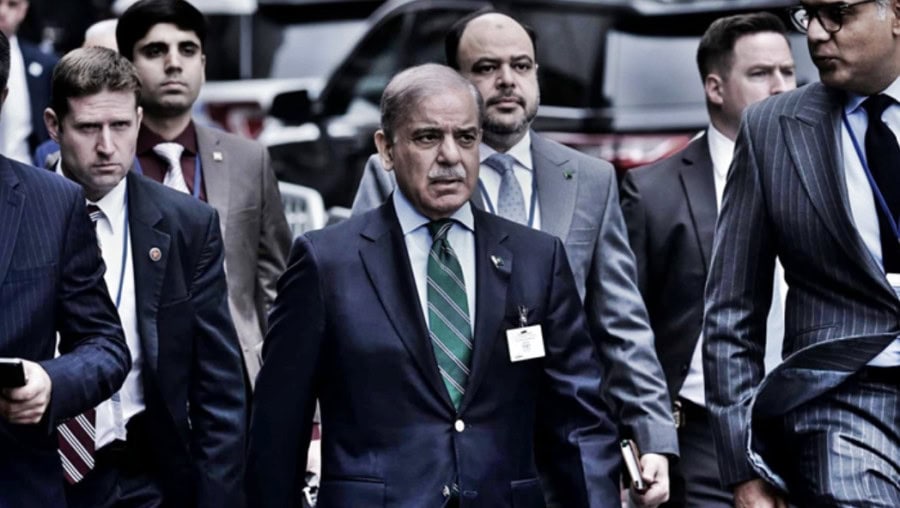Under the leadership of Prime Minister Shahbaz Sharif, Pakistan is making an impressive ascent from economic stagnation to a path of prosperity. On both the domestic and international fronts, the country is experiencing a revival, propelled by strategic reforms and foreign policy successes. This transformation positions Pakistan as an emerging leader in regional and global affairs, while citizens enjoy increasing economic relief.
Pakistan’s international standing is undergoing a significant transformation. The country is emerging as a key player in global and regional activities, highlighting its growing importance. As Pakistan makes strides in diplomacy and economic growth, its new image is reflected in multiple successes on the international stage.
At home, the government has enacted sweeping reforms that boost investor confidence, enhance business prospects, and reduce inflation. The result is increased job opportunities and a growing sense of trust from the public. These initiatives reflect Pakistan’s upward trajectory toward sustainable growth.
Pakistan’s foreign policy achievements are also noteworthy. At the 69th session of the UN General Assembly, Pakistan stood out as a global leader for the Muslim world, championing the causes of Palestine and Kashmir. This bold stance demonstrates Pakistan’s determination to play a pivotal role in key international issues.
Furthermore, the continued flow of high-level foreign delegations to Pakistan is a testament to the country’s growing influence. Recent visits from the leadership of Malaysia, Saudi Arabia, and upcoming talks with China underscore the strengthening of Pakistan’s foreign relations and economic ties.
In early October, Malaysian Prime Minister Dato Seri Anwar Ibrahim visited Pakistan, resulting in agreements to boost bilateral cooperation in trade, investment, defense, and agriculture. The visit also reaffirmed both nations’ strong stances on regional issues, such as the crises in Gaza and Kashmir. Pakistan is set to export $200 million worth of halal meat and 100,000 metric tons of basmati rice annually to Malaysia, enhancing its trade profile.
Later in the month, Saudi Arabia’s high-level delegation, led by Investment Minister Khalid bin Abdulaziz Al-Falih, expressed admiration for Pakistan’s economic reforms. Al-Falih praised Pakistan’s efforts to improve its business environment, which has led to 27 agreements across sectors like energy, textiles, cybersecurity, and agriculture. Saudi Arabia has committed to supporting Pakistan’s journey toward economic stability and will soon finalize a landmark deal with Barrick Gold. The relationship between Pakistan and Saudi Arabia is not merely diplomatic but familial, with deep-rooted bonds driving cooperation.
Meanwhile, after an 11-year hiatus, China’s Premier Li Qiang is set to visit Pakistan, signalling an opportunity to further strengthen the China-Pakistan Economic Corridor (CPEC) and other bilateral ventures.
Pakistan’s economic partnership with Saudi Arabia alone is worth billions. The 27 agreements signed include collaborations in energy, information technology, textiles, agriculture, mining, and cybersecurity. The memoranda of understanding (MoUs) signed amount to $2.2 billion in investments, and bilateral trade has seen a remarkable 80% increase, rising from $3 billion in 2019 to $5.4 billion today.
Malaysia, too, has agreed to increase cooperation, with a particular focus on the export of halal products and basmati rice. The total trade volume between Pakistan and Malaysia currently stands at $1.4 billion, encompassing various sectors like palm oil, textiles, and electronics. As Malaysia assumes the chairmanship of ASEAN in 2025, this partnership is expected to grow even stronger.
Pakistan’s efforts to improve its business climate have made it an increasingly attractive destination for foreign investors. The government’s focus on simplifying bureaucratic processes and eliminating red tape is paying dividends, as evidenced by the growing number of international deals and investments.
With critical reforms and international collaborations, Pakistan is positioning itself for sustained growth. As it continues to navigate global economic challenges, the country is setting itself on a trajectory toward long-term stability and prosperity.
Prime Minister Shahbaz Sharif’s leadership marks a turning point for Pakistan—transforming the nation’s economy from a state of uncertainty into a beacon of opportunity and resilience. The journey from default to economic take-off is not just a dream but a reality unfolding before our eyes.










